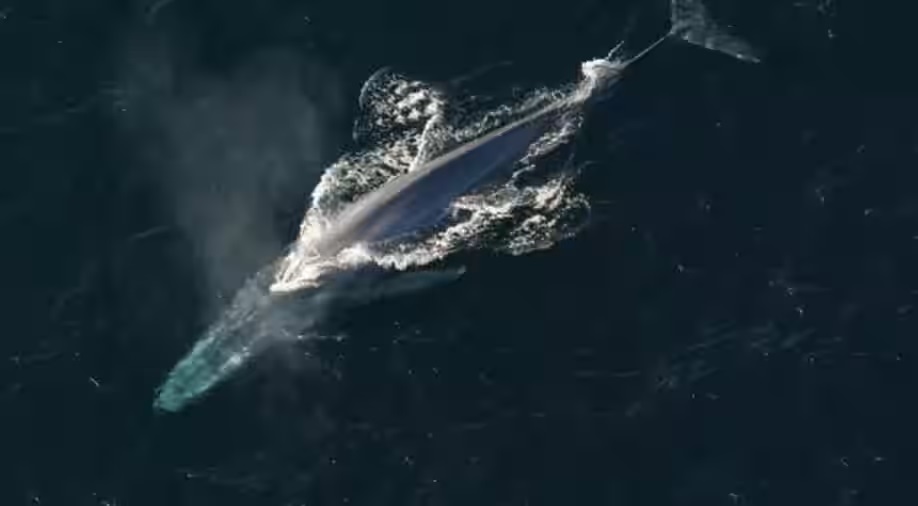The National Oceanic and Atmospheric Administration (NOAA) states that blue whales are the largest creatures on Earth, and that commercial whaling caused a dramatic decrease in their population throughout the 1900s.
Researchers have discovered that blue whales have made a comeback to an area of the Indian Ocean close to the Seychelles, where the largest mammals on Earth were once exterminated by whaling. This finding is a victory for conservation efforts. Based on a year’s worth of underwater audio recordings, the research—the results of which were published in the journal of Endangered Species Research—found that the creatures spend months in the area.
What is the purpose of the study?
The blue whale footage that was shot between 2020 and 2021 and used in the Return of the Giants documentary is the basis for the study that was released earlier this month by academics and filmmakers.
Blue whales are the largest mammals on Earth and can be found in all oceans with the exception of the Arctic Ocean, according to the National Oceanic and Atmospheric Administration (NOAA). However, as a result of commercial whaling, their population drastically decreased in the 1900s.
The main reason why blue whales are listed as an endangered species by the International Union for the Conservation of Nature is because of commercial whaling, which has had a long-lasting effect on the population of these mammals, which is reportedly just a small portion of what it once was.
The paper also mentioned how Soviet whalers used the Seychelles as a “opportunistic whaling ground” in the 1960s, killing up to 500 blue whales without a permit.
A team of scientists and filmmakers carried out the study over the course of a month. According to the BBC, one of the primary researchers, Dr. Kate Stafford, would use a hydrophone for a few hours every day in an attempt to record the sound of the area’s blue whales.
Moreover, there was a “sound trap” that was purportedly installed for a year close to the Seychelles Seabed and contained underwater microphones, batteries, and recording equipment. Every hour for fifteen minutes would be recorded by these devices every day.
What did the investigators discover?
The study hypothesizes that blue whales may be using the area as a breeding site after the fitted “sound trap” recorded the mammal’s distinctive, extremely low-frequency song. Researchers have discovered that blue whales sing throughout the breeding season; in particular, they have been observed singing in March and April.
Dr. Stafford told the BBC that “this means the Seychelles could be really important for blue whales.”
One of the primary authors continued, “They sing during the breeding season, and based on what we know about other whales, we think it’s probably the males who are singing.”
She also mentioned the possibility of a “breeding area or a nursery area” in the area.
According to the researcher, blue whales find the island nation to be a “nice, quiet, safe place” because there isn’t much ship activity there.
Seychelles has formally conserved over 400,000 square kilometers around the island as part of the “debt for nature” swap, in exchange for having about $22 million of its national debt written off.
Researchers also discovered that the blue whales would only communicate when they were not there, which is why the only way they could find blue whales in the area was by examining the sound trap recordings.



